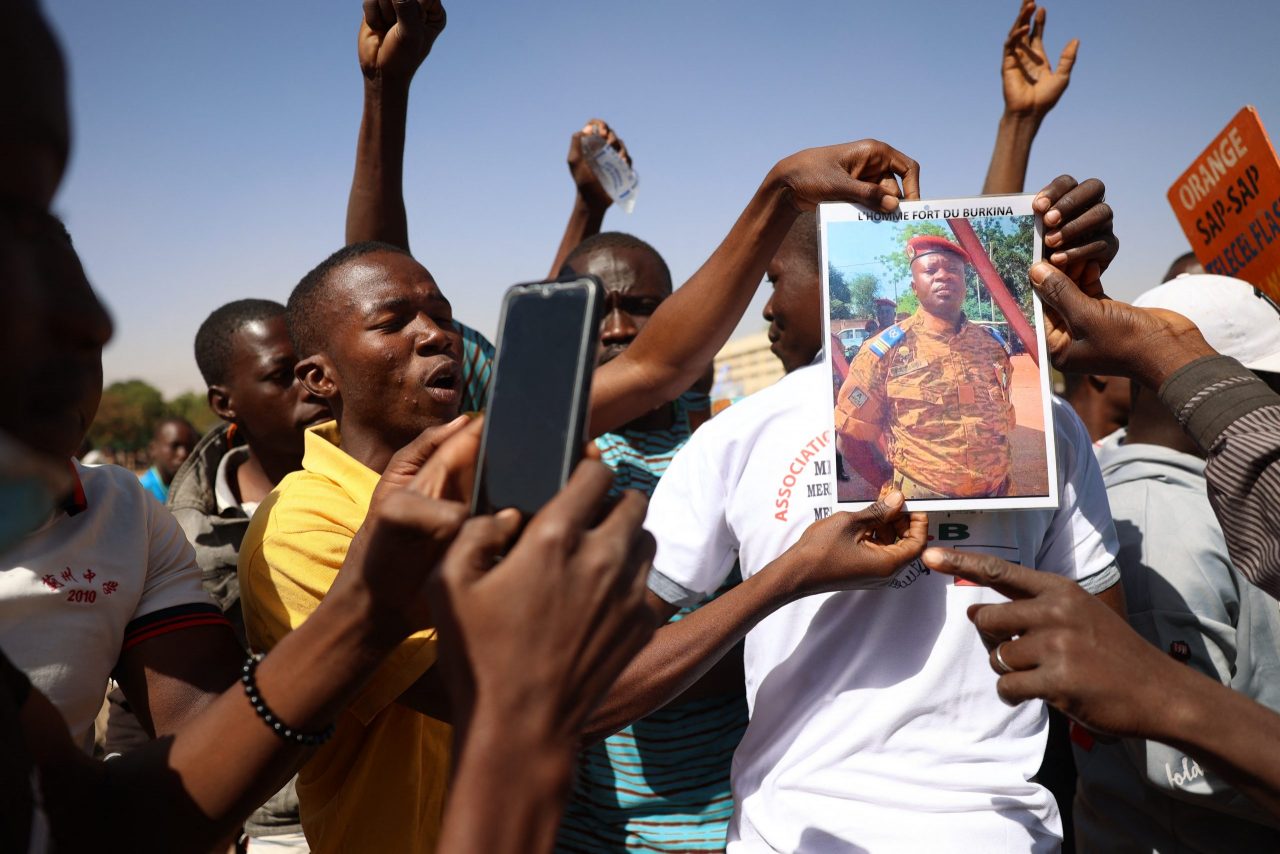
Africa is again being hunted by the spectre of coup d’états that we thought had receded to the background of political events given the growing endurance of democratic politics in the continent and institutional underpinnings for peer review. In what appears a resurgence of the old political scourge, the African militaries are on the march to state houses especially in West Africa, whose regional body, ECOWAS appeared not to be on top of the governance process. On January 23 the soldiers in Burkina Faso seized power from the country’s democratically elected president, Roch Marc Christian Kaboré. The new military strongman, Lieutenant Colonel Paul-Henri Sandaogo Damiba, announced the dissolution of the government and the National Assembly, and the suspension of the constitution while simultaneously promising a “return to constitutional order” within “a reasonable time.
Nevertheless, the coup has been condemned by sundry international organisations and countries. The African Union (AU) strongly condemned the military take over. The regional body, The Economic Community of West African States (ECOWAS) has also condemned the coup. The EU and the United States called for the release of President Kaboré. UN Secretary-General Antonio Guterres “strongly” condemned the military “coup” and called on the perpetrators “to lay down their arms” and protect the “physical integrity” of the president. The AU’s 15-member Peace and Security Council has voted to suspend Burkina Faso’s participation “in all AU activities until the effective restoration of constitutional order in the country.”
It would be recalled that Burkina Faso’s latest political upheaval comes from a background of a shaky transition process following the 2014 peoples’ revolt against the dictatorship of Blaise Compaore. Through a joint transition arrangement that included the civilian and military, democracy was ushered into the polity. It is to be noted, however, that ECOWAS, the AU, and the UN were instrumental to the restoration of democracy in Burkina Faso. Notwithstanding, there have been military attempts to seize power. So, in reality, the democratic process was fragile and the inability of Kabore’s government to gain an impressive upper hand over the jihadist delegitimised the government thereby paving the way for the current incursion. The president, it must be remarked, was not oblivious to the political currents in his country. Following an attempted coup a week earlier before his eventual deposition, he tried to reshuffle a large part of his cabinet. It would appear that the November 2021 terrorist attack on a gendarmerie unit in Inata, northern Burkina Faso, in which more than 50 elements of the state security forces were killed, was decisive in the military takeover.
Beyond condemnation, this latest coup in Burkina Faso calls for deep reflection on what is going on the continent if we are to rescue Africa from the scourge of military rule. Before the military struck on Saturday, January 22, 2022, there was social contestation in the streets of Ouagadougou and other cities in Burkina Faso over the inability of the ruling government to halt the jihadist violence that has plagued the country since 2015. So the core question is about the government’s failure to stem jihadist attacks that have largely destabilised the country with a disturbing fatality put at about 2000 and internally displaced persons (IDPs) put in the region of 1.5 million in the last six years. The question is whether the solution to the insecurity plaguing the country will come from the military alone? Is it a case of the military subverting the limits of objective civilian control of the military that concedes its professional and technical prerogatives in the military matter?
We condemn the coup d’état and believe that political differences can be resolved through dialogue or more legitimately through the ballot box by removing from power an underperforming government instead of a resort to the gun. Since the post-colonial phase of African history, the continent has seen a series of coup d’états, and a balance sheet has revealed underdevelopment, massive human rights violation, and mismanagement of national resources. The coup leaders by their declaration intend to pursue a transition to democracy. This is a recognition of the fact that military incursion into politics is nothing but an aberration. Also, the point should be made that those good intentions of coup makers do not always triumph as they end up being dogged by authoritarian temptation. This makes democracy the best option for resolving the governance crises afflicting the continent. Africa’s supranational organisations must stretch diplomacy to ensure that the military return to the barracks. In the current instance, it should leverage its experience in the previous negotiations that ensure a rather smooth transition to democracy in 2015.
Importantly, as some observers have noted, it is also time to reopen the debate on the best corridor to deepening democracy in Africa given the subversion of democracy by elected leaders who seek unlimited tenure in office and commits electoral malfeasance just to remain in power. The spate of coups in the last three years in the continent, from Sudan to Mali, Guinea and now Burkina Faso is unsettling for the continent’s democratic future. One sure way to rebuilding confidence in the continent’s democratic processes is for regional and continental organisations, namely, ECOWAs and AU to occupy the moral high ground by pointing out the ills of governance and condemning them. It must begin to avoid the cozy embrace of civilian dictators and perverters of democracy who provide the rational for military intervention in the political process.
As for Nigeria, we advise the military to remain professional and protect the country’s democracy. The fate of the continent hinges largely on the Nigerian example. State actors and citizens alike must be committed to the democratic process and help to safeguard it from perversion by self-serving politicians and ambitious military officers. It is simply a responsibility.






